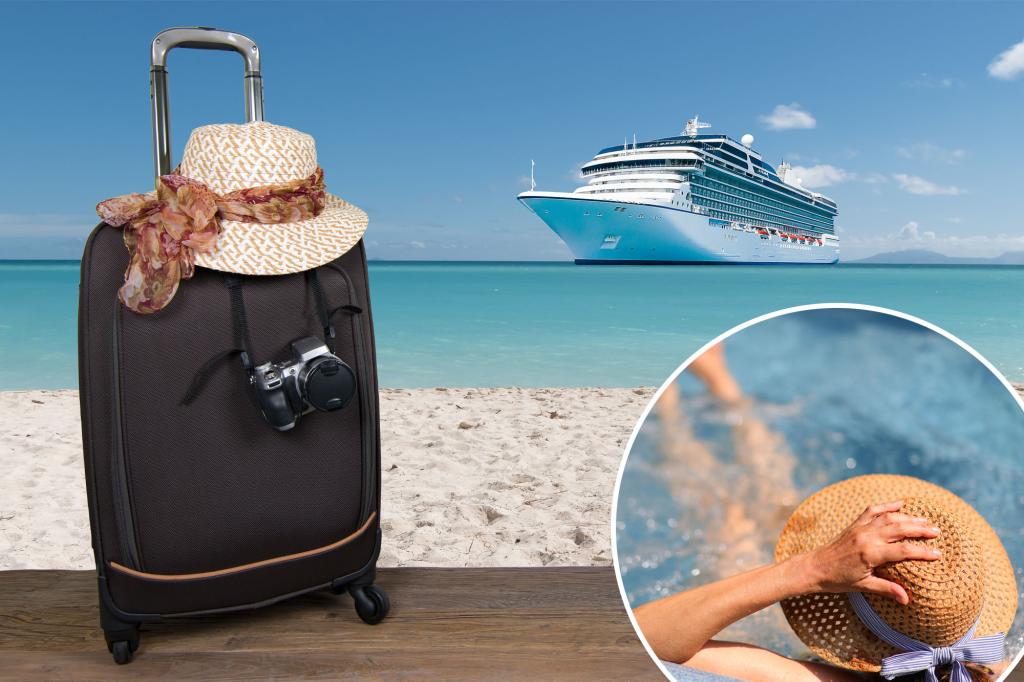Don’t let your vacation go to ship.
Cruises are a popular travel option thanks to endless entertainment options, bottomless buffets and easy movement from port to port — but they can also be hotbeds for infectious diseases, stomach upset and issues that arise from having a little too much fun in the sun.
Here’s how to avoid getting sick on the boat, from contagions to food poisoning to sunstroke.
Practice good hand hygiene
“Infectious diseases spread quickly on cruise ships because a lot of people share the same space day and night for an extended amount of time in relatively close contact,” Dr. Shalom Sokolow, an emergency medicine physician at Northwell’s Phelps Hospital Outbreaks, told The Post.
Cruises are particularly notorious for tummy bugs, with 2024 marking the worst year for stomach virus outbreaks aboard in over a decade.
“Norovirus, a stomach virus, travels very quickly on cruise ships,” added Dr. Eric Ascher, a family medicine physician at Northwell’s Lenox Hill Hospital.
Both doctors stressed that it’s crucial to practice good hand hygiene to avoid catching something.
“Always wash your hands after you have been in contact with other people and before you eat,” Sokolow said.
Ascher recommends lathering those hands up with warm, soapy water for 30 seconds, taking extra care to wash your hands before you eat, after you use the bathroom and before touching your face.
Be careful at the buffet
“Travelers enjoy buffets when traveling, but that is also an easy way for the norovirus to spread because of all the shared utensils,” Ascher said.
That’s not the only way to induce gastro distress from the all-you-can-eat line-up — it can be easy for other bugs to spread, and certain foods pose a risk when they sit out for a long time.
So, should cruise-shippers bring their own lunch out of an abundance of caution?
“Plentiful and fun food is among the main appeals of a cruise and there is no reason to miss out,” Sokolow said. “However, there are a few basic steps to protect yourself from getting sick.”
As tempting as it may be to dive into the shrimp tower caveman-style, those giant tongs are there for a reason.
“If you are at a buffet, avoid communal platters where other guests have already reached in to grab with their hands — it’s much better to use serving pieces,” he said.
“Additionally, be mindful of how long food may have been left out. Seafood and foods with mayonnaise are especially likely to harbor bacteria that causes food poisoning if left out of the refrigerator too long.”
That rule especially applies to food that’s been sitting out in the sun.
Load up on sunscreen
“Sunscreen is the first thing travelers should pack, and extra!” Ascher said.
“It is important to make sure you reapply as the label instructs, especially after being in the water. And do not forget to apply to the nose, back of the neck and ears. Wearing hats and sunglasses are also things I encourage.”
Experts never stop telling people to wear sunscreen — ideally SPF 30 or higher — and for good reason.
In addition to reducing your risk of skin cancer, sunscreen will help protect you from looking like a boiled lobster in all of your vacation photos.
Get up to date on your shots
While the melting pot of different nationalities could make for a more cultured happy hour, it could also expose you to some foreign bugs.
“Cruises often bring together people from different parts of the world. A traveler or crew member from one continent may expose their shipmates to germs to which they have no previous exposure and therefore no immunity,” said Sokolow.
Visiting new places can also expose you to viruses you might not typically encounter at home.
“Make sure to inquire in advance if any of the destination ports advise special vaccinations for travelers,” Sokolow said.
“This could help prevent potentially serious illnesses such as hepatitis, typhoid and yellow fever.”
Pack the essentials
Aside from sunscreen, sunglasses and a hat, Ascher also recommends putting hand sanitizer, aloe vera, lip balm and a medicine bag containing OTC pain relievers, antacids and allergy drugs on the top of your packing list.
Stay hydrated and ease seasickness.
Endless drinks are one of the major perks of cruises — but don’t forget that dehydration is dangerous.
“Make sure you stay very hydrated, especially if alcohol is involved,” Ascher said.
Hours in the sun can also lead to dehydration — so if you’re not sure you’re getting enough water, supplemental electrolytes could keep you from getting a fever, headache, nausea and dizziness.
Another nausea trigger? Seasickness — and Ascher warns that screen time could make it worse.
Finally, the same rule on land applies to the high seas: “If someone seems sick, better to avoid close contact,” Sokolow said.
Read the full article here

